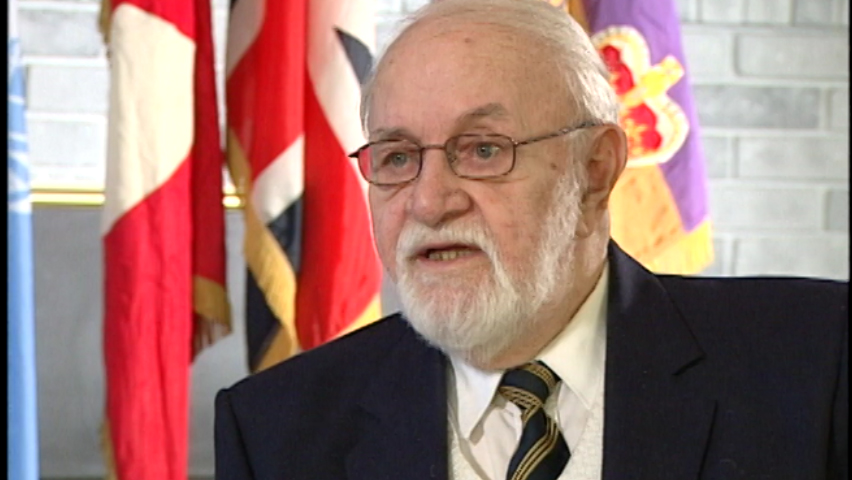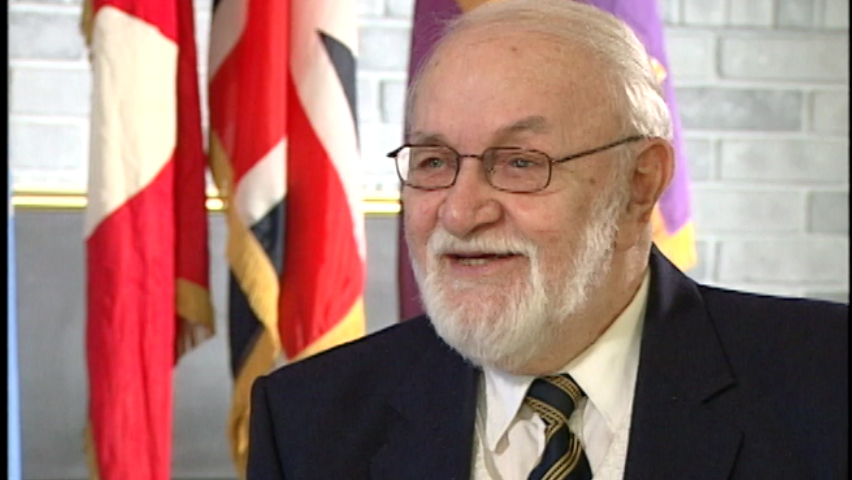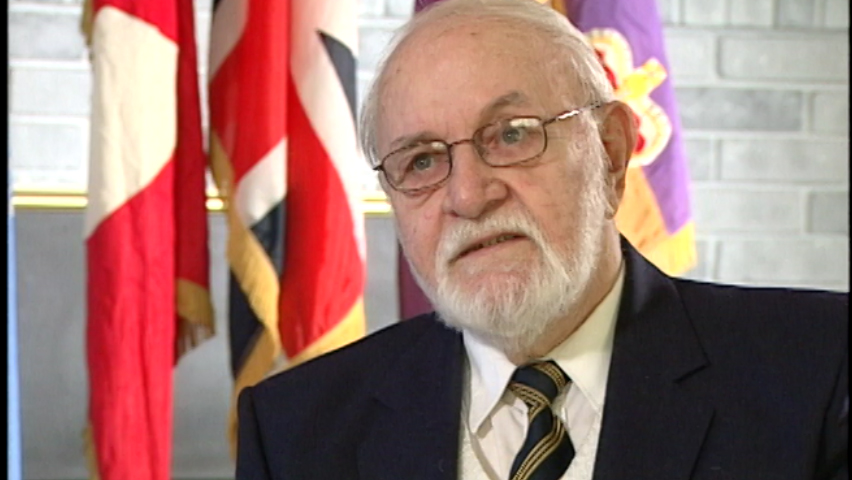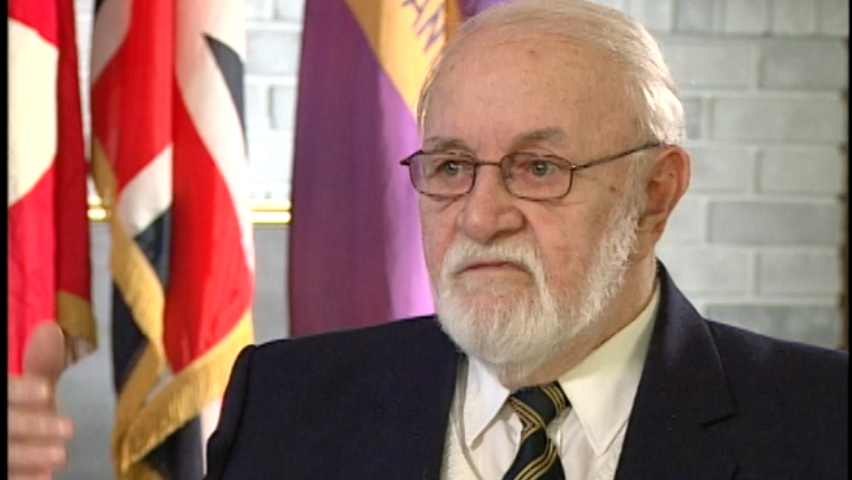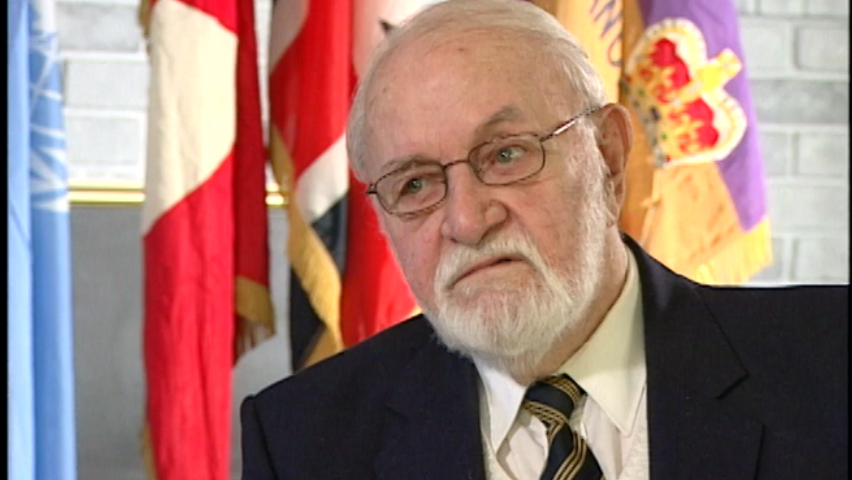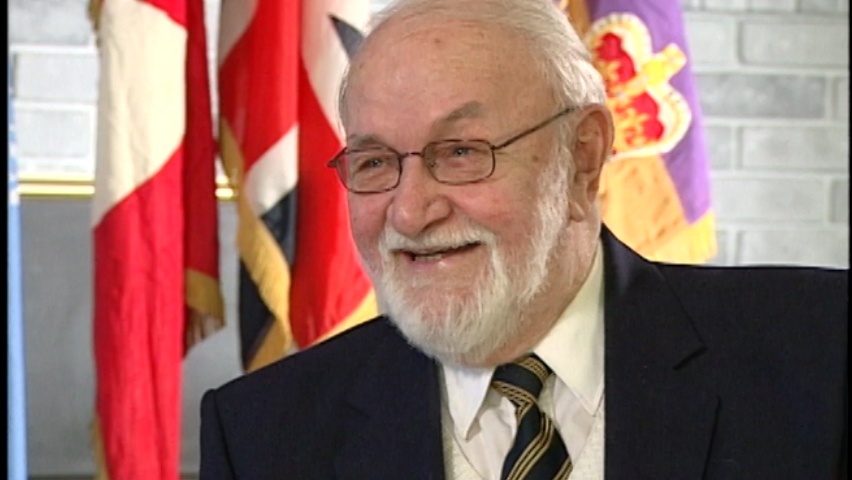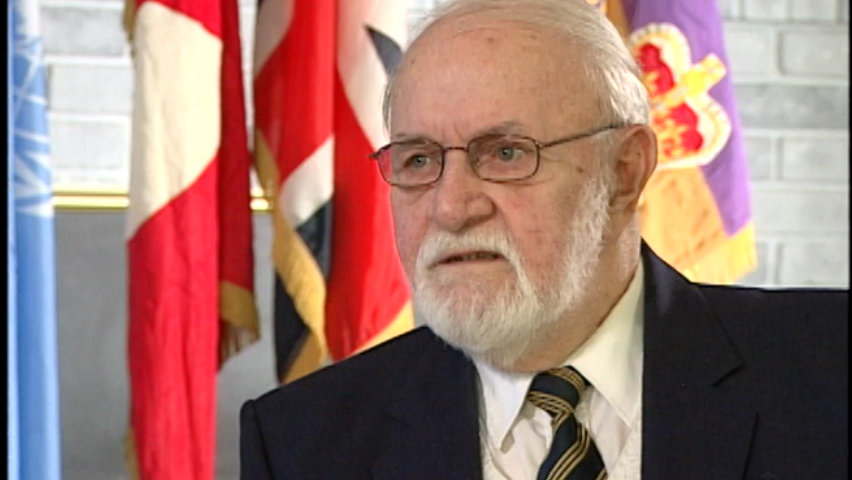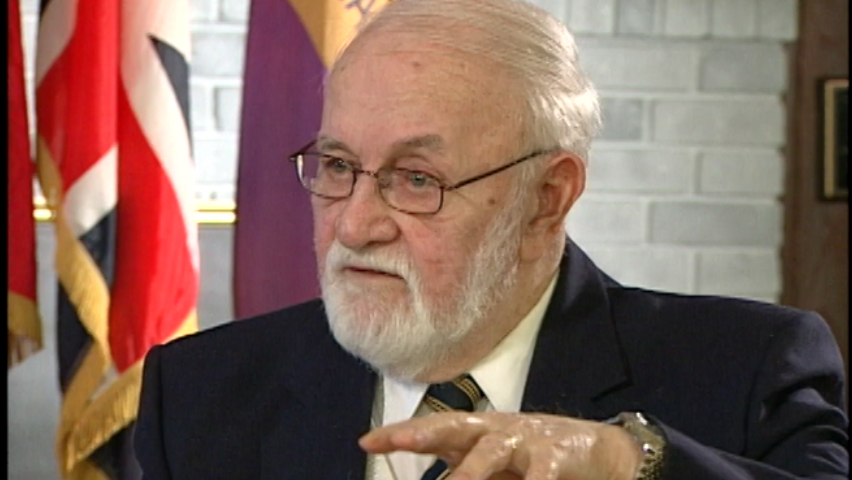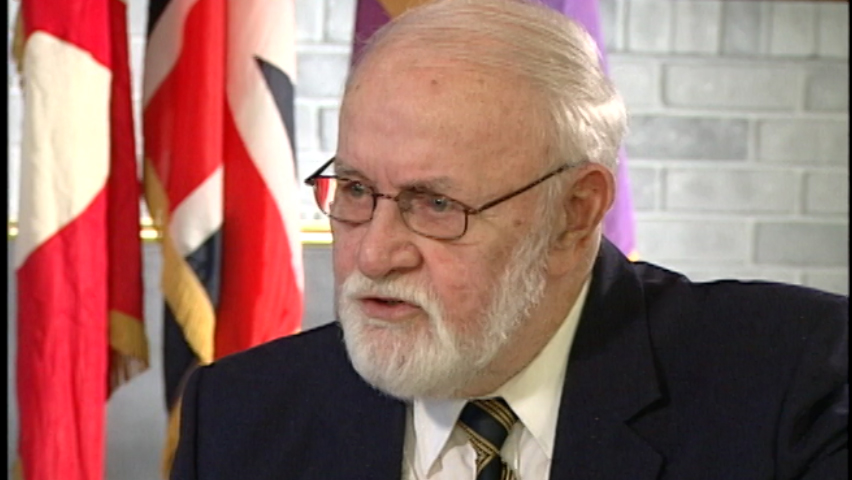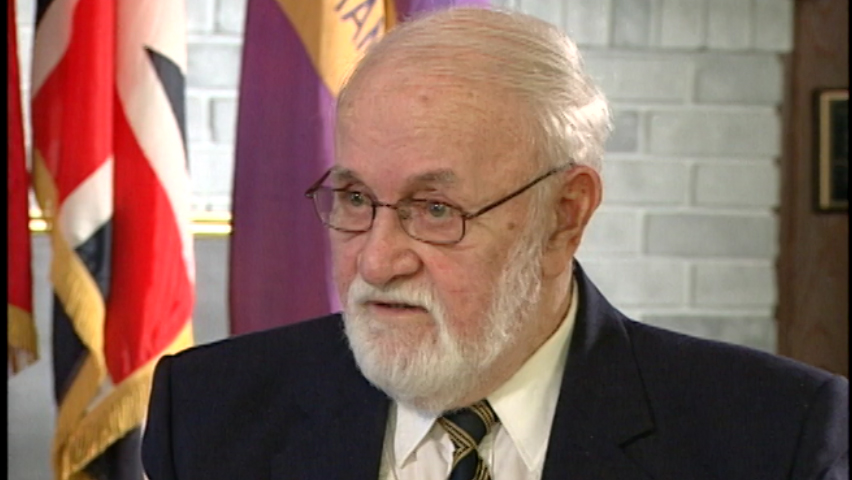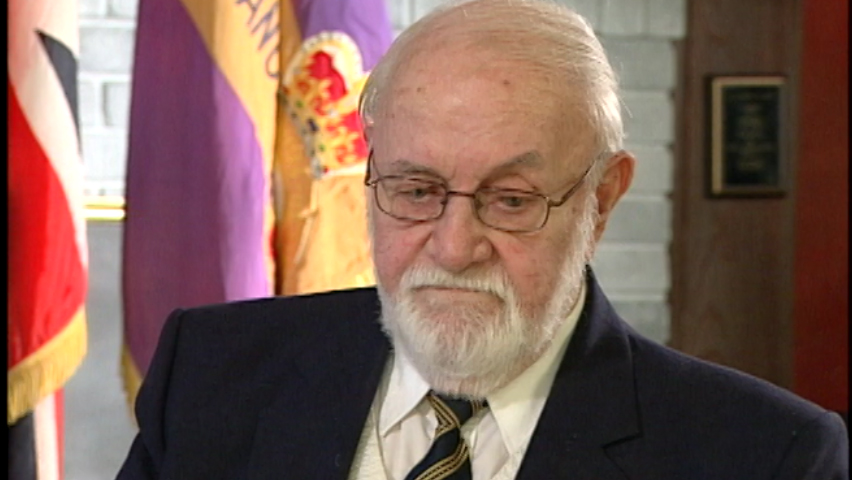What Was It All For? - The Futility of War
Heroes Remember
What Was It All For? - The Futility of War
Transcript
Description
Mr. Candow explains his frustration with armed conflict.
Gordon Henry Candow
Mr Candow was born December 15, 1920, and is the oldest of nine children. Joining in with the lads he was working with when war broke out, he signed into the navy but was quickly transferred to artillery. In May 1940, Mr. Candow sailed overseas as a part of the 57th Heavy Regiment, and was stationed to Norfolk, Great Britain, performing costal defence for a year and a half. After being shipped to Southern England the 57th was soon incorporated into the 166th Newfoundland Field Artillery Regiment. In January 1943, the regiment was shipped to North Africa. They remained in action until the end of the North African campaign, when they were shipped to Italy where the unit saw action in Fogia, Cassino, Ortona, and Boulogne. When the war ended, he returned to Southern England for a short period and then returned home to Newfoundland.
Meta Data
- Medium:
- Video
- Owner:
- Veterans Affairs Canada
- Duration:
- 05:51
- Person Interviewed:
- Gordon Henry Candow
- War, Conflict or Mission:
- Second World War
- Branch:
- Army
- Units/Ship:
- 166th Newfoundland Field Regiment
- Rank:
- Gunner
- Occupation:
- Communications Gunner
Related Videos
- Date modified:



